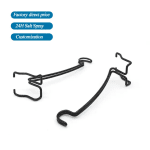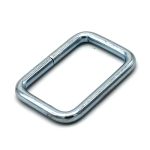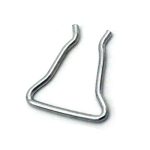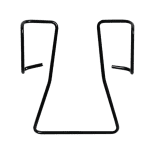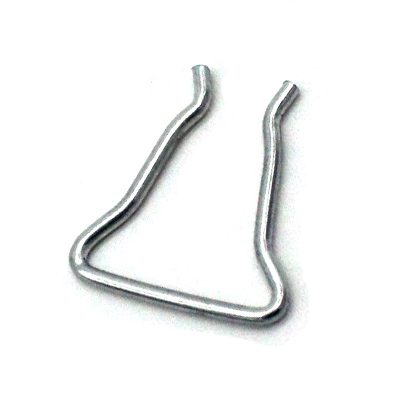
Wire Forming Materials Are Used In A Wide Range Of Applications, From Simple Household Items To Complex Industrial Machinery. The Choice Of Wire Forming Material Depends On The Specific Requirements Of The Application, Such As Strength, Flexibility, Corrosion Resistance, And Conductivity. Here Are Some Of The Common Types Of Wire Forming Materials:
1. Steel: Steel Is One Of The Most Widely Used Wire Forming Materials Due To Its Strength, Durability, And Versatility. It Can Be Easily Formed Into Various Shapes And Sizes, Making It Suitable For A Wide Range Of Applications. Steel Wire Can Be Further Classified Into Several Types, Including Carbon Steel, Stainless Steel, And Alloy Steel. Carbon Steel Wire Is The Most Common Type And Is Used In Applications That Require High Strength And Durability. Stainless Steel Wire Is Highly Resistant To Corrosion And Is Often Used In Applications That Require High Hygiene Standards, Such As Medical Equipment And Food Processing. Alloy Steel Wire Is A Combination Of Different Metals And Is Used In Applications That Require Specific Properties, Such As High Temperature Resistance Or Magnetic Properties.2. Copper: Copper Wire Is Widely Used In Electrical And Electronic Applications Due To Its Excellent Conductivity And Malleability. It Is Also Highly Resistant To Corrosion And Can Be Easily Formed Into Various Shapes And Sizes. Copper Wire Is Often Used In Wiring For Electrical Appliances, Motors, And Transformers.
3. Aluminum: Aluminum Wire Is Lightweight And Highly Conductive, Making It Suitable For Electrical And Electronic Applications. It Is Also Highly Resistant To Corrosion And Can Be Easily Formed Into Various Shapes And Sizes. Aluminum Wire Is Often Used In Wiring For Aircraft, Automobiles, And Other Transportation Equipment.
4. Brass: Brass Wire Is A Combination Of Copper And Zinc And Is Often Used In Applications That Require High Corrosion Resistance And Aesthetic Appeal. It Is Also Highly Conductive And Can Be Easily Formed Into Various Shapes And Sizes. Brass Wire Is Often Used In Jewelry, Decorative Items, And Musical Instruments.
5. Nickel: Nickel Wire Is Highly Resistant To Corrosion And Is Often Used In Applications That Require High Temperature Resistance And Durability. It Is Also Highly Conductive And Can Be Easily Formed Into Various Shapes And Sizes. Nickel Wire Is Often Used In Heating Elements, Sensors, And Other High-Temperature Applications.
6. Titanium: Titanium Wire Is Lightweight, Highly Corrosion-Resistant, And Has Excellent Strength-To-Weight Ratio. It Is Often Used In Applications That Require High Strength, Durability, And Corrosion Resistance, Such As Medical Implants, Aerospace Components, And Marine Equipment.
7. Plastics: Plastic Wire Is Lightweight, Flexible, And Highly Resistant To Corrosion And Chemicals. It Is Often Used In Applications That Require Insulation, Such As Wiring For Electronic Devices And Appliances.
8. Other Metals: Other Metals, Such As Gold, Silver, And Platinum, Are Often Used In Specialized Applications That Require Specific Properties, Such As High Conductivity Or Resistance To Oxidation. These Metals Are Often Used In Electronic Components, Jewelry, And Other High-End Products.
In Conclusion, Wire Forming Materials Come In A Wide Range Of Types And Properties, Each Suited To Specific Applications. The Choice Of Wire Forming Material Depends On Various Factors, Including The Desired Properties, Application Requirements, And Cost Considerations. Manufacturers And Wire Processors Often Work Closely With Material Suppliers To Choose The Most Suitable Material For Their Specific Applications.
I Wish Everyone Can Find Their Own Hardware Accessories, Xiamen Hongsheng Spring Welcome Your Choice!



